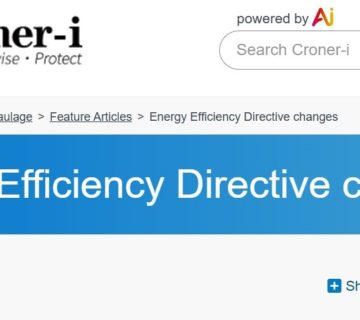The debate between efficient internal combustion engine (ICE) car users and battery electric vehicle (BEV) and fuel cell electric vehicle (FCEV) users continues.
Fossil fuels come with climate, security and pollution-based issues. Rare battery metals are difficult to mine.
However, with sufficient will, the real solution is perhaps clearer.
Efficient ICEs can coexist with BEVs and FCEVs if the absolute numbers of both can be reduced substantively.
Naturally, this will not be an easy transition. The UK alone has around 32 million cars on the road and this number increases by around 500,000 a year. Car companies, oil companies, and a whole range of supply chains rely on this industry for jobs. However, as car manufacturers are increasingly mechanising all aspects of this industry, this is not necessarily the project that will kill jobs.
Shortly before Christmas 2021, a Conservative Government transport minister called for a move away from car ownership towards shared mobility
As something that this, and most sustainability specialists have been stating for decades; This is a welcome proposal.
Replacing 32 million cars with 32m+ cars (of any description) is far from sustainable. Transport contributes 27% of all UK Greenhouse Gas (GHG) emissions. This is similar in most developed nations. Under 2% of all the UK national grid’s electricity is currently consumed by transport. As we move away from gas boilers towards efficient electric heat pumps, the national grid will be under gargantuan pressure to provide electricity for these and to accommodate masses more availability for renewable energy and appropriate storage. Adding 32m million cars to an already overstretched grid infrastructure will be challenging.
The vast number of all cars are sat on driveways and car parks for something like 90% of their lives. Car ownership with instant depreciation has never made financial sense. More and more BEV users lease these vehicles, not least because the battery responsibility is no longer theirs.
The fact is that the App technology to call-down a car (or a suitable vehicle to the task), exists today. The point of owning a 4×4 for the rare occasions a driver needs to off-road, an MPV for family tours of the UK or an estate for the rare visits to the tip, is nonsensical. An App based system would allow access to any vehicle type at any time, from any urban location. Have a wedding to attend, call off a Roadster, want to tour Europe, call-off a recreational vehicle (RV), need to move some furniture, call off a van. Of course all of this can further link to integrated rail, coach, bus and taxi infrastructure as well as active travel.
Such a move need not be a ban on personal ownership. Such ownership may continue but with vehicles available to call down, anyone that wishes to continue to own a car can be appropriately taxed to do so.
It will take more than a switch from ICE to BEV to address the climate crisis, resource availability issues and clean air.
It will take a massive change in the way we think about car ownership.
Alan Asbury. 15th January 2022. These are the views of the author.



